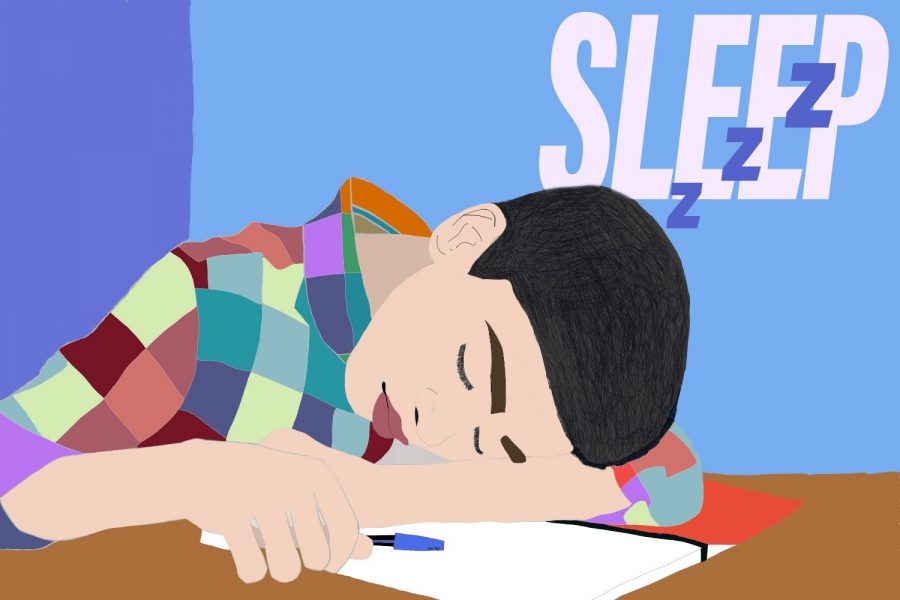Bed head
How to avoid falling into sleep deprivation
Photo by Logan Diggs
Constantly functioning off little to no sleep can start off very minor but turn into a life consuming problem.
October 30, 2020
Growing up, maintaining healthy sleeping habits is very important to the body’s overall growth and development into adulthood. Even if one was to maintain a healthy diet and work out consistently, they may not reach their personal goals with an unstable sleep schedule. Everyone needs sleep, it’s necessary for all human beings to perform at peak condition. With that being said, school, relationships, work and many other things can prevent people from getting enough sleep. As a result, sleep deprivation and or a healthy sleep schedule can change every aspect of a person’s day to day life.
Staying up until two in the morning isn’t detrimental occasionally; until, it becomes a habit. The average adult should get more than seven hours of sleep and teenagers should get eight to 10 hours according to a Medical News Today article.
Constantly functioning off little to no sleep can start off very minor but turn into a life consuming problem.
The overall lack of sleep can also be dangerous and consequential for one’s health. It takes one split second for the operator of a vehicle or machine to cause a traumatic disaster, simply because they didn’t get enough sleep. Even though a vast majority of people will say they simply don’t have time to sleep, it is flat out necessary to stay healthy.
Students are among common sleep deprivation victims along with representing a large percentage of people with unhealthy sleeping habits. A universal experience for all students is procrastination. More than likely, a student will have found themselves staying up all night cramming for a test or finishing a project. However, many don’t realize that some students do exactly that daily just to pass classes they are struggling in or strive for a high grade.
There are many ways to prevent falling victim to sleeping disorders like deprivation. Solutions to this problem are simple. A person should start by making sure they have a routine on when they go to bed and when they wake up; setting an alarm can help develop this habit until it is natural. Try to avoid large meals, caffeine, alcohol and nicotine a few hours before getting ready to go to bed.
Another very helpful tactic to use for easy relaxation before one is trying to go to bed is making a to-do list. This causes less stress while trying to slow and clear one’s mind. Lastly, stay away from taking long mid-day naps. If a person is to sleep all day, it’s likely that they will be inclined to stay up throughout the night.
Developing these healthy habits is extremely beneficial and a proper sleep schedule is an amazing trait a person should bring into adulthood. Furthermore, it shouldn’t stop there due to the fact that the benefits are enjoyed by all ages.
“I wake up at 5:20 in the morning from Monday to Friday for swim practice and with that being said, I undoubtedly suffered from sleep deprivation at times,” senior John David Cass said. “I remember after weeks of feeling sick and just bad in general I realized three hours of sleep a day wouldn’t cut it, ever since then I have got into the habit of going to bed at eight in the afternoon. When my sleep schedule is on the right track I feel healthier, think smarter, and exercise hard.”















